 Petzlover
Petzlover Both American Polydactyl and Jaguarundi Curl are originated from United States. Both American Polydactyl and Jaguarundi Curl are having almost same weight. American Polydactyl may live 4 years less than Jaguarundi Curl. Both American Polydactyl and Jaguarundi Curl has same litter size. Both American Polydactyl and Jaguarundi Curl requires Low Maintenance.
Both American Polydactyl and Jaguarundi Curl are originated from United States. Both American Polydactyl and Jaguarundi Curl are having almost same weight. American Polydactyl may live 4 years less than Jaguarundi Curl. Both American Polydactyl and Jaguarundi Curl has same litter size. Both American Polydactyl and Jaguarundi Curl requires Low Maintenance.
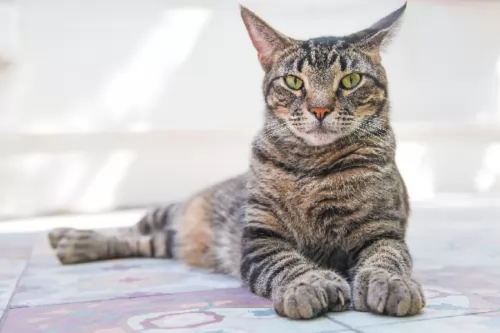 It is believed that this unusual cat came to the United States on ships – kept by sailors who thought of them as a good luck charm and to keep the mice population under control.
It is believed that this unusual cat came to the United States on ships – kept by sailors who thought of them as a good luck charm and to keep the mice population under control.
These unusual cats became popular in the 1800s as ship cats but the cats soon began to be seen in port cities on the Eastern coast of the United States as well as Canada, and their numbers began to increase.
It is also believed these interesting cats were brought specifically to the Boston area.
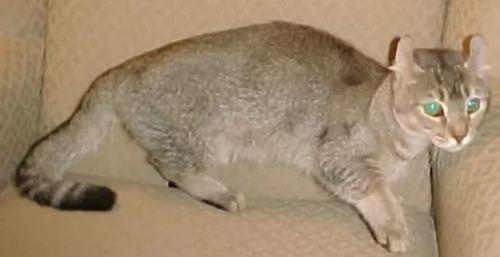 Found mostly in Central and South America, the Jaguarundi Curl has been bred to look like a wild cat. - the Jaguarundi.
Found mostly in Central and South America, the Jaguarundi Curl has been bred to look like a wild cat. - the Jaguarundi.
It was in the 1940s that the cat was also found in Florida. It is a result of a crossing between the Hyland Lynx with Munchkins and possibly other short-legged domestic cats.
The Munchkin cat is a medium-sized cat and it also has very short legs – the result of a genetic mutation.
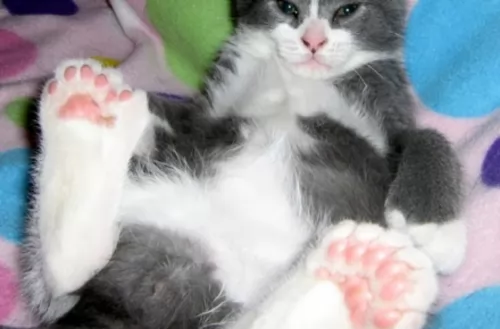 The Polydactyl cat is unusual in that the cat has been born with something odd about it. It has more than the regular number of toes on just one or more of its paws.
The Polydactyl cat is unusual in that the cat has been born with something odd about it. It has more than the regular number of toes on just one or more of its paws.
Normal cats have a sum of 18 toes, with 5 on the front and 4 on the back but with Polydactyl cats you may find as many as 9 digits on their front and back paws.
American Polydactyl cats are medium to large in size with strong, muscular bodies. The cat can weigh up to 6kg. The head is broad, the ears wide-set and pointed and the coat can be any color, pattern and length.
These cats are easy-going, relaxed, and social. They’re hardy too and they’re able to enjoy being outdoors and indoors.
They’re affectionate with their human family and are also playful and energetic. It is prepared to be friendly with dogs and children too, but it is also able to act independently and get on with things. The Polydactyl cat is distinctive but also a very popular cat breed.
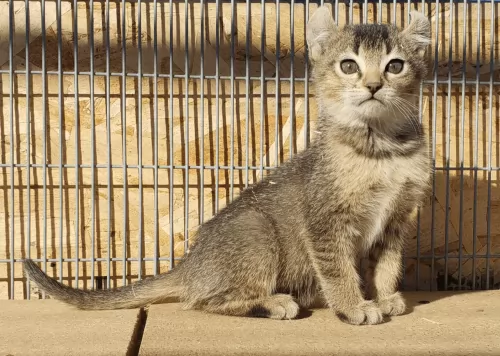 This is a medium-sized, strong, muscular wild cat with short legs, a large head and small ears that are curled and set wide apart.
This is a medium-sized, strong, muscular wild cat with short legs, a large head and small ears that are curled and set wide apart.
The eyes are wide-set and are large and expressive. The eyes can be gold, green or even blue.
The cat can weigh anything between 6 and 10kg. They can take up to years to reach their weight. The tail of the cat is long and thick, the body long and muscular.
The short coat is a ticked or a spotted pattern and can come in various colors. In most cats, the coats are tawny or solid like the Jaguarundi. In ideal specimens, coats will be tawny or solid like the Jaguarundi.
Maybe it’s the cat’s wild side but the Jaguarundi Curl cat is a shy, elusive and somewhat solitary cat. In the wild these cats only socialize to mate.
It is, however, a very vocal cat. The cat is also a good climber and swimmer and you will need to invest in climbing equipment.
If your Jaguarundi Curl has more Munchkin in him, you may find him far more sociable and actually seeking out the company of his human family.
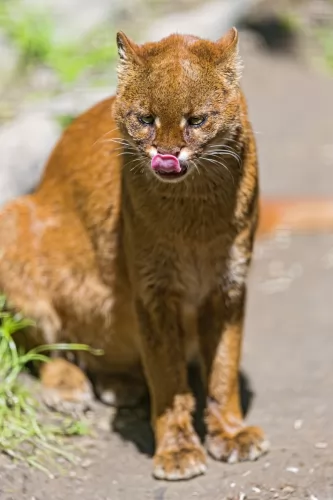 The wild Jaguarundi is smallish cat that is a little bit larger than a house cat.
The wild Jaguarundi is smallish cat that is a little bit larger than a house cat.
Some people like keeping these mixed-breed, hybrid cats, and they can make good pets, but they do tend to be reclusive. You have to remember that with these cats, part of their genetic makeup is a wild cat, and this just means that you can’t really be sure how they will turn out.
Think twice before you buy a cute little Jaguarunndi Curl kitten. Cat Rescue shelters are seeing a massive escalation in the number of hybrid cats who are just abandoned by their owners.
They wanted a ‘wild-type’ cat and ended up with behavior from the cat that they couldn’t handle. How cruel is that. Its the human's fault, not the cat.
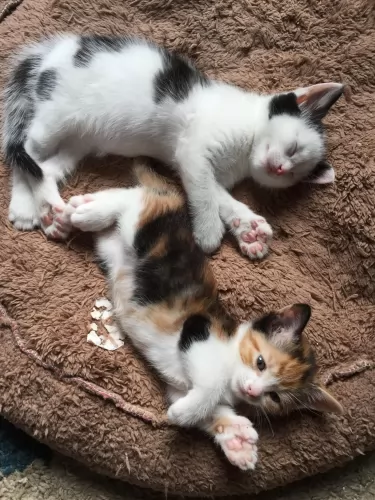 With good care, these cats can live to be between 14 and 16 years of age. You need to be diligent with keeping this cat’s nails trimmed because depending on the placement of the toes, the nails could become a nuisance, growing in the wrong direction and cutting into he cat’s flesh.
With good care, these cats can live to be between 14 and 16 years of age. You need to be diligent with keeping this cat’s nails trimmed because depending on the placement of the toes, the nails could become a nuisance, growing in the wrong direction and cutting into he cat’s flesh.
Keep the nails trimmed as necessary. To avoid possible injury to your pet, your veterinarian can safely trim your cat’s claws.
Always pay attention to your cat's behavior as well as taking note of your cat when you groom him as both are good ways to discover whether anything is amiss with your polydactyl cat.
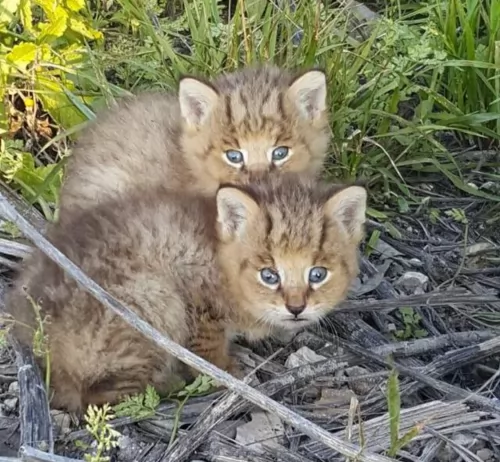 Hybrid cats do have some health issues because of their breeding. Cat owners who choose these cat breeds need to know that they have special needs.
Hybrid cats do have some health issues because of their breeding. Cat owners who choose these cat breeds need to know that they have special needs.
You should speak to your vet about the health of your cat. Domestic cats and wild cats have a different number of chromosomes. These cats wouldn’t normally mate so that when they are crossed during breeding, an abnormal genetic makeup is a result.
Reproductive problems in cats like the Jaguarundi Curl become a common occurrence and stillbirths can be the norm. Often you’ll find that some of the cats are infertile, whether male or female.
You've also got to be aware of vaccines as sometimes they don't work with these hybrid cats. Many times a cat like this is exposed to rabies and you'll find that the vaccine was ineffective.
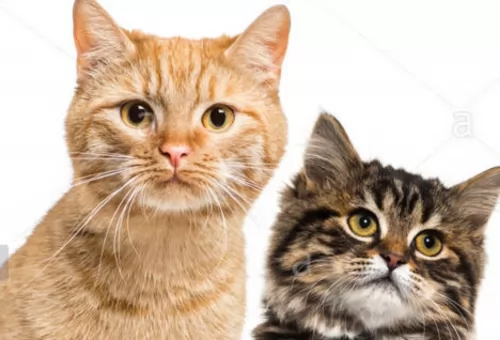 Keep an eye on your cat’s paws as their extra toes can make it that they are at a higher risk of hooking on a carpet or some other material, but this can be managed with regular nail trimming.
Keep an eye on your cat’s paws as their extra toes can make it that they are at a higher risk of hooking on a carpet or some other material, but this can be managed with regular nail trimming.
Provide your cat with all the things he needs to make his life pleasant while in your care. He’ll need feeding and drinking bowls, a nice warm, dry bed, a litter box, stimulating toys, and things such as a scratching post and cat climbing tree.
Cats are meat-eaters, and they need protein from meat for health. Some cooked chicken and beef can be a real treat for your pet. Grains and carbohydrates should only play a very small role in your pet’s diet. Too many grains can lead to malnutrition and obesity as well as problems with your cat's organs.
Always take into account your cat’s age because different life stages mean different energy levels and therefore different nutritional needs.
Take your sick cat to the vet when you see he is not his usual self. Make sure you keep up to date with all his vaccines and anti-parasite treatments.
One of the most important health decisions you’ll make for your Polydactyl cat is to have your pet spayed or neutered. The procedure is common and performed in your vet’s office every day.
It offers lifelong health benefits. It improves your pet’s behavior and keeps them close to home too. Spaying a female cat will prevent uterine infections and breast cancer, and for males, it can prevent testicular cancer.
Best of all, it helps to prevent yet more kittens into a world overrun with stray cats and rescue centers jam-packed with unwanted kittens and cats.
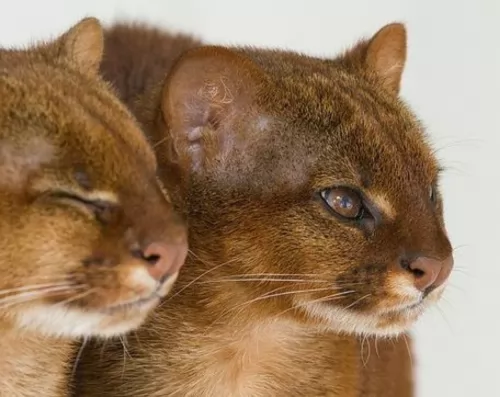 Be prepared for the new arrival of your cat. Have food and water bowls, warm bedding, toys, litter box, and food all available and waiting.
Be prepared for the new arrival of your cat. Have food and water bowls, warm bedding, toys, litter box, and food all available and waiting.
Your Jaguarundi Curl doesn’t require a specialized diet. You can feed him much the same as your other domestic cats.
The food needs to be high-quality and can be wet or dry food, so long as it makes sure that meat is the top ingredient. Your cat is a carnivore and will require meaty meals to remain healthy. Dietary supplements or vitamins can only do your Jaguarundi Curl good.
You can brush the coat once each week to remove loose hair and to keep the coat shiny.
You want to provide your cat with a litter box and keep it clean too. These hybrid cats don’t easily learn to use the litter box as they should, and they may do their business around your home as opposed to using the litter box.
Get your pet a collar and tag to identify your cat in case he gets away.